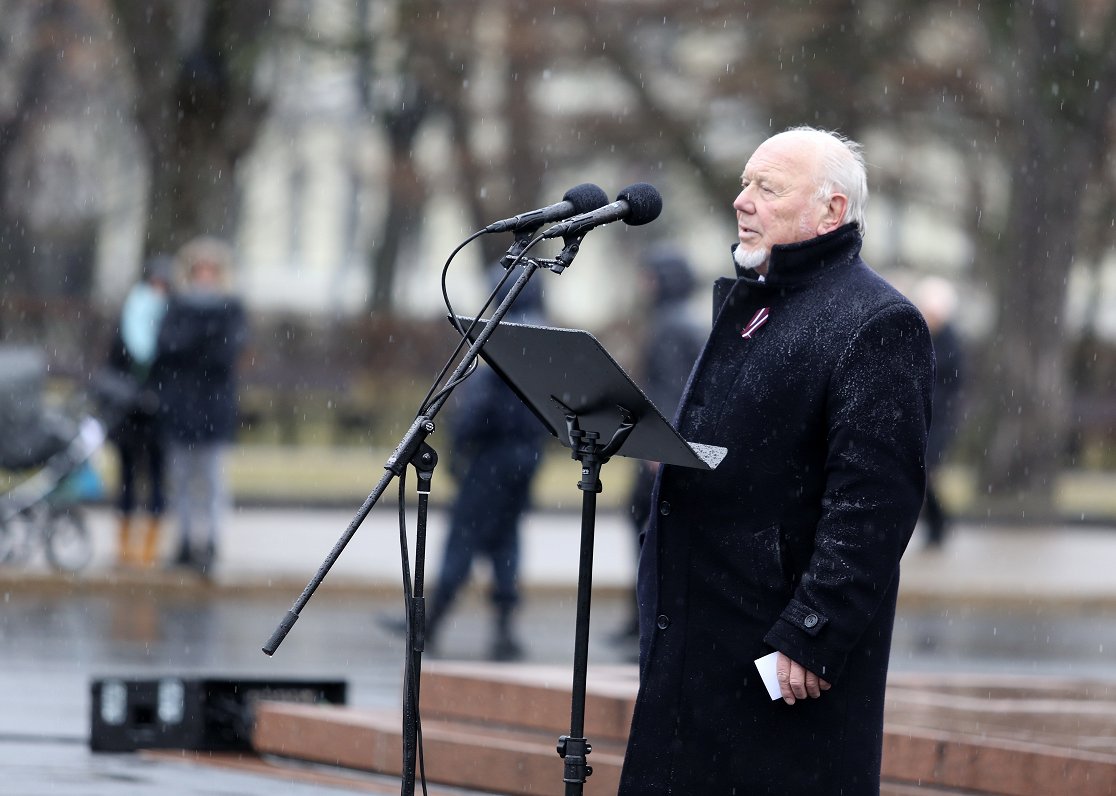Events are held throughout the day at key Rīga sites, such as the Freedom Monument, the Torņakalns and Šķirotava railway stations and the Museum of the Occupation of Latvia; events are also held at other locations across the country.
Astrīds Freimanis of the Latvian Association of Politically Repressed Persons (LPRA), told Latvian Radio June 14 that the memory of what happened taught an important historical lesson.
"We are happy. We love our land," said Freimanis, explaining that teaching the history of the deportations made pupils are more aware of the need to protect independence.
"They understand what this leads to if a country loses its independence and falls into the hands of a foreign power," Freimanis said, "Someone who does not know their history cannot hope for the future."
Speaking at a conference about the deportations at Rīga Castle, President Raimonds Vējonis said: "These are stories that are painful to remember and perhaps sometimes people wish to forget. But to build a strong society and state, we must understand, confront and reconcile ourselves with the painful and uncomfortable past.”
There were two main waves of deportations, one in the wake of the Soviet Union's 1940 occupation of independent Latvia, which saw more than 15,000 people (including 2,400 children under the age of ten) loaded into trucks on June 14, 1941.
On the same day, at least 430 former Latvian army soldiers were deported from a camp near Litene in Gulbene district - others were summarily executed on the spot. These events too will be commemorated today.
Families were separated. Some children never saw their fathers again. There were numerous deaths during the journey of thousands of kilometers in cramped, unsanitary conditions.
According to the Museum of the Occupation of Latvia: "Conditions in the hard labor camps were inhumane. The inmates lost their identities, and were terrorized by the guards and criminal prisoners. Food rations were meager, and did not replace the calories expended through work. People grew weak, and were crippled by diarrhoea, scurvy, and other illnesses.
Winters were marked by unbearable cold, and many did not survive the first one. Only a small part of those deported in 1941 later returned to Latvia. The families in forced settlement had to fend for themselves in harsh conditions; the death rate among the very young and the elderly was likewise high."
A second wave of deportations on an even larger scale, involving some 42,000 men, women and children took place on 25 March, 1949. The effects on Latvian society can be felt to this day.
An excellent multilingual online virtual museum about the experiences of children deported to Siberia is HERE.



























